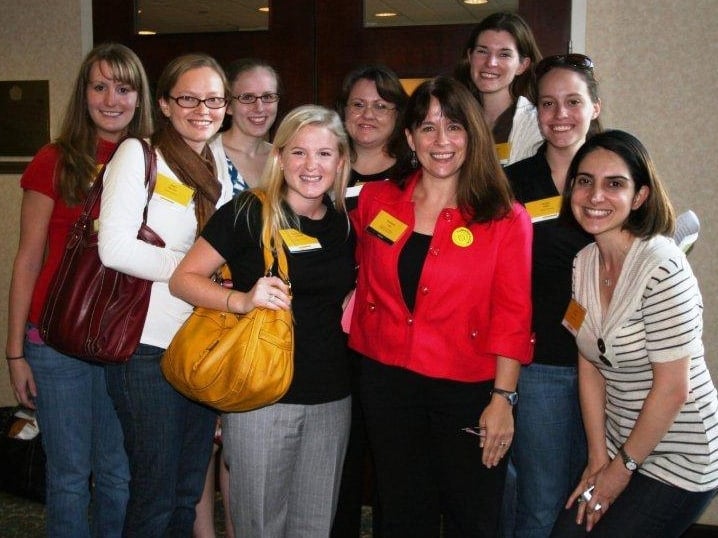by Nancy Neff
University of Texas at Austin students are learning how to help cancer patients and their families with issues of stress, coping, grief and survivorship through a new course bringing together the fields of social work and oncology, the first academic class of its kind in the nation.
The aim of the School of Social Work course, “Interdisciplinary Seminar in Psychosocial Oncology Practice and Research,” is to prepare graduate students in social work, nursing, psychology, public health, health kinesiology, human ecology, nutrition and pharmacy to provide clinical services and conduct research in psychosocial oncology. Psychosocial oncology refers to the care of people with cancer, including assessment, counseling and support of patients and their families during treatment and beyond.

“There are more than 12 million cancer survivors in the United States, and they need to have a comprehensive support for the myriad of psychosocial issues and challenges that they will face,” said Dr. Barbara Jones, assistant professor of social work. “Social work, which focuses on empowering individuals and their families, is uniquely situated to assist cancer patients and their families through the journey of this disease.”
Before joining the School of Social Work faculty, Jones was a pediatric oncology social worker, working with children with cancer and their families. She provided counseling, helped with communication and was an advocate for families. As a researcher and teacher, she now works to improve the care of these individuals, including better understanding the long-term needs of children who survive.
Most children with cancer do survive, Jones said. Advances in treatment have improved prognoses dramatically since the 1970s and ’80s. Today, of the 12,000 children diagnosed with cancer each year, about 80 percent will be cured.
“But survivors of childhood cancer of which there are more than 250,000 in the United States have needs that continue long after the cancer treatment ends,” Jones said.
As part of the new class, students became involved with several projects, including Bclub Austin, a local group that raises emergency funds for people with breast cancer. Another group of students, working through the national program, SuperSibs!, helped siblings of children with cancer at Dell Children’s Medical Center of Central Texas. Several students worked with the Yoga Bear program to design a manual for training yoga instructors to help cancer survivors.
“Cancer affects everyone in some fashion, whether it be someone’s mother, father, child, partner or friend,” said social work student Kathryn Burgin whose group worked with Bclub Austin. “Social workers should understand the implications of the disease.”
In turn, social workers help other health professionals understand the importance of focusing on the patient’s life outside of the medical setting, Burgin added. “The social worker provides an ear to listen to what the client needs outside of medical intervention.”
Yoga Bear operates by inviting yoga studios to offer free classes to cancer survivors. Prior to the university student involvement, yoga studios who signed up were sent two pages of tips on working with cancer survivors. Students in Jones’ class created a comprehensive handbook that also covered the scientific evidence behind yoga and cancer, the terminology of cancer, psychosocial stressors faced by people with cancer and issues surrounding boundaries between yoga instructors and their students, among other details.
“As social workers, no matter where we end up working, we will come into contact with people who have cancer or who have loved ones who are fighting or have died from cancer,” said social work student Alison Fader-Brock. “We need to be prepared to hold space for the many experiences that people have with cancer. Although we may not be able to imagine the intensity of these experiences, it will help us if we have some idea of what they mean.
“An oncology class provides an in-depth introduction.”
At Dell, students developed a sibling support bag that children can decorate and are gathering a set of books recommended by SuperSibs! for the clinic’s Family Resource Center. They also made a sibling spotlight board for sibling photos and quotes to hang in the outpatient pediatric cancer center.
“The possibilities just snowballed once we began,” said Ellen Martin, a nursing student taking the course. “Dell also is interested in doing a sibling day event.”
Martin said she was very pleased to see the course being offered because she wants to do her dissertation work on the patient and family transition to hospice services.
“I have never worked in oncology nursing and wanted to make sure I was prepared to interact with cancer patients and their caregivers in a compassionate and supportive way. I definitely learned that people have a long and complicated journey before they get to hospice care.”

